|
When my husband and I were preparing for marriage, we spent time in reflection and prayer carefully choosing our Mass readings. It was such an exciting decision to make, and we prayed that the readings would reflect and inspire us in our marriage and all whom we would witness to by our marriage. Some of these same readings will be read at Masses across the world on the upcoming feast of the Holy Family, serving as a reminder of how we can live as reflections of the Holy Family in our daily lives. In the second reading, Paul tells the Colossians, “Put on, as God's chosen ones, holy and beloved, heartfelt compassion, kindness, humility, gentleness, and patience” (Col 3:12). Just like Mary, Joseph, and Jesus, we are God’s beloved, chosen and loved by God, and with that, we are called to live by these same virtues that Paul shares with the Colossians. The stories of Mary and Joseph consistently show us their lives of humility and gentleness. I think of Mary’s fiat (Luke 1:38), Joseph’s obedience to the angel of the Lord (Matthew 1:24), or how Mary and Joseph took Jesus to be presented in the temple in this weekend’s Gospel (Luke 2:22-40). Just like Mary and Joseph, we are called to serve and love God with faithfulness that is radical, but gentle and sweet. What does this faithfulness look like? For the Holy Family, not only did it manifest in the stories we read about in Scripture, but also in the mundane moments of the every day. Mary nursed Jesus as an infant, Joseph taught him carpentry, and Jesus served his parents and brought them joy! Jesus carried this love in his ministry that nurtured all to whom he preached, and it continues to carry on in the legacy of the Church. These little acts of faithfulness yielded enormous fruits and carried the Holy Family through times of immense suffering. As I feel overwhelmed with my day to day duties of family life as a wife and mother, or my job as a teacher, I find comfort in knowing that perhaps Mary and Joseph felt these demands, too. They were faithful to their vocations, to each other, and to the Lord. Life is a balancing act, but with “Christ dwell[ing] in you richly,” like the Holy Family, all can be done in love, “do[ing] everything in the name of the Lord Jesus” (Col 3:17). You show faithfulness when you do the dishes, when you submit an assignment for work or school, when you make the bed. You show faithfulness when you play with your children, when you have coffee with a friend, when you stop and pray. You show faithfulness when you show up to Mass. Opportunities for faithfulness, humility, and gentleness are in the every day, both big and small. Through these opportunities for faithfulness I have learned that God is never outdone in generosity. He wants to bless us and let us know His love, and He does this in the most profound way when we show Him our faithfulness and love, just as the Holy Family has modeled for us. As we continue to navigate the demands of our daily lives, let us cling to the intercession of the Holy Family, that we may be gentle and humble, showing radical faithfulness in all that we do. Question for Reflection: What are some opportunities to show for faithfulness in your life? For more resources on Marriage and Family, click here. Alyce Shields is a teacher in Washington D.C.
0 Comments
This year’s Advent was special for me; I have so much to be thankful for. My husband and I celebrated our first Advent season together, and are experiencing both the chaos and joy of the Christmas season. Joy for us is found in the little moments and in reflecting on the birth of Jesus. Something we found particularly joyful during the Advent season was sitting and writing out Christmas cards. Thinking about each of the people we were writing to and sharing our love with them reminded us of the love we give by spreading the Good News. The Christmas miracles of joy and giving are alive in those cards; and we hope they inspired our relatives and friends. For my husband, opening cards is a moment of celebration because he loves getting mail. That is the joy that we wanted others to experience this Christmas.
As we reflect on this Christmas season, we can recognize the things that foster joy in our hearts. I’ve taken time to consider my own generosity and think of those in need. In the Prayer of St. Francis we hear a reminder of how to live with our hearts open. One of my favorite lines from that prayer reminds us that “it is in giving that we receive.” Those are such poignant words. The Christmas season especially reminds us to give of ourselves. We look to the generosity of God Himself, who became man in order to give us the gift of salvation. When the world is in disarray, let us look to Christ who came to us in absolute humility on Christmas morning. I imagine the hustle and bustle in Bethlehem as Mary and Joseph went through the hordes of people for the census only to find no room for them. They ultimately found a quiet and humble spot for the most important birth in the world; Jesus brought joy to the chaos. In our lives, He brings joy, too. In the chaos of the holidays, in the midst of our planning and scheduling, travel and seeing relatives, we find that same child. The center of our lives is Christ Himself, welcoming us to quiet peace and joy. As we continue to celebrate this Christmas season, turn to the quiet and find Him for yourself. You will find joy there. Turn to the person in need—you will find joy there. Open your hearts to love and giving and you will find joy in the chaos. Merry Christmas! Question for Reflection: How can you carve out time each day to "turn to the quiet" and spend time with Christ? For more resources on Advent and Christmas, please click here. When we think of this time of year, we may call to mind images of a family gathered around the hearth, presents under the tree, and perhaps a nativity set illustrating the upcoming celebration of the birth of Christ—one of the central events in salvation history. We are, however, not quite at Christmas; we are still in the final days of Advent—the holy four-week period of preparation and expectation. Around this time two thousand years ago, the Holy Family was facing the uncertainty of finding shelter before the imminent birth of Jesus Christ. They would not have been thinking of gifts or carols or greetings of the season; all that mattered was securing a safe place for Mary to deliver her child.
In his work, Life of Christ, the Venerable Servant of God Fulton J. Sheen observed, “When finally the scrolls of history are completed down to the last words in time, the saddest line of all will be, ‘There was no room in the inn.’” While the Roman census had decreased the amount of vacancies throughout Bethlehem, Sheen continued, there would always be accommodations for those who could pay a certain amount. The Holy Family carried with them not merely gold or silver, but the eternal King of Kings; however, all that was offered to them was a back-end stable. What king would ever be born of such humble origins? Jesus came into the world unknown to most scholars, rulers, and other great people, apart from the Magi. Yet His mission was infinitely greater than what the world expected. In these final Advent days, I invite you to refresh the spiritual hospitality of your hearts. Our hearts are where our Lord comes to dwell in us. We hear the Word of God and see it in action every day, but if we are to build upon that in our lives, we must take steps to ready our hearts to welcome Christ. And since Jesus promised that He would “prepare a place for [us]” in His Father’s house, how faithfully should each of us take the steps to tend to the throne room of our hearts from which He shall reign over our lives? “Prepare the way of the Lord,” the prophet Isaiah cries out. Spiritually preparing, refreshing, purifying, and maintaining our hearts is a process which endures throughout our entire life. It is a part of the universal call to holiness extended to each of us. Just as the Incarnation of God was first made known to the childlike and foreigners, so too are all people called to prepare their hearts as an inn to receive the Most High God Who humbled Himself and took on our human nature. Jesus, the Son of the living God, earnestly and lovingly desires to dwell in our hearts. What an unfathomable honor and blessing this is! He will never force His way into our lives but patiently waits for us to invite Him into the place shaped by our faith, words, thoughts, and deeds. We must make room for Him in the inn of our heart. When Christ finally does come may we be vigilant and ready to welcome Him to dwell in our hearts and lives forever. A man named John was sent from God. He came for testimony, to testify to the light, so that all might believe through him. (John 1:6-8)
The first word that comes to mind upon reading this Gospel is humility. In response to questions from the priests and Levites, John explains that he baptizes not as Christ, Elijah, or the Prophet, but as “the voice of one crying out in the desert, ‘make straight the way of the Lord’.” John is so quick to point out this distinction, so quick to give credit where he feels credit is due. Reflecting back to my years of service as a Lasallian Volunteer and Good Shepherd Volunteer, I think I could have used a slice of this humble pie. How often did I consider myself “the light,” taking on the responsibility to serve, or save, the communities I entered? How often did I fail to see the parts of myself that needed saving, and that this saving work was never really mine to begin with? Thanks to time, perspective, and most of all, the grace of God and those I have encountered, I continue to be humbled - moved beyond my self-righteousness, and into a space of more authentic listening, learning, and loving. These moments, in all their discomfort and vulnerability, become my testimony; through the gift of growth, I can “testify to the light.” Focus on: COMMUNITY In this Gospel, the questions posed by John’s community invite him to name who he is and what he is about. Community often provides this challenge and gift - holding a mirror up to our past, present, and future and reflecting how all these complexities meld and meet the world. How do your communities help you own your truth? In community, how can we help each other “testify to the light” within? SERVICE SUGGESTION: Spend some time reflecting upon someone in your community who has helped you grow more into who you aspire to be. Write a note of appreciation, take them out to coffee, or find some unique way to affirm them and acknowledge the influence they have had. PRAYER: Our Power to Bless One Another by John O'Donohue (Excerpt from To Bless the Space Between Us) In the parched deserts of post-modernity a blessing can be like the discovery of a fresh well. It would be lovely if we could rediscover our power to bless one another. I believe each of us can bless. When a blessing is invoked, it changes the atmosphere. Some of the plenitude flows into our hearts from the invisible neighborhood of loving kindness. In the light and reverence of blessing, a person or situation becomes illuminated in a completely new way. In a dead wall a new window opens, in dense darkness a path starts to glimmer, and into a broken heart healing falls like morning dew. It is ironic that so often we continue to live like paupers though our inheritance of spirit is so vast. The quiet eternal that dwells in our souls is silent and subtle; in the activity of blessing it emerges to embrace and nurture us. Let us begin to learn how to bless one another. Whenever you give a blessing, a blessing returns to enfold you. *This post was published in the 2017 Advent Reflection Guide, a collaborative effort between the Catholic Volunteer Network and the Catholic Apostolate Center. Click here to view the full guide. Katie Delaney is a former Lasallian Volunteer and former Good Shepherd Volunteer. To learn more about faith-based service opportunities through the Catholic Volunteer Network, please click here. During college, I had a professor with a reputation for being extremely challenging. Upperclassman students would warn us as freshman: “whatever you do, don’t take him! You will work more in his class than you ever have before!” I vividly recall one chilly, December afternoon walking by this professor’s office and watching students storm out from it, visibly angry. “Not good,” I thought to myself. It would certainly be easier to continue to breeze by in my classes than to be challenged. My senior year, against all advice, I decided to enroll in this professor’s class. The warnings from the upperclassmen were correct. He was difficult and challenged me to grow in my craft like no educator before had ever challenged me. And for that, I am forever thankful. How can you grow without being challenged? I am only the professional I am today because my professor was dissatisfied with the status-quo. He knew his curriculum would be difficult, but he believed that each of his students could achieve more, even though it was uncomfortable and challenging. He wanted us to excel rather than simply get by. As I reflect on Pope Francis’ upcoming 81st birthday and give thanks to God for his ministry, I see some similarities between him and my professor. One of our Holy Father’s greatest gifts to the people of God is that he challenges us to be uncomfortable with the status-quo, with “maintenance mode.” In Evangelii Gaudium, Pope Francis exclaims: “In our day Jesus’ command to ‘go and make disciples’ echoes in the changing scenarios and ever new challenges to the Church’s mission of evangelization, and all of us are called to take part in this new missionary ‘going forth’. Each Christian and every community must discern the path that the Lord points out, but all of us are asked to obey his call to go forth from our own comfort zone in order to reach all the ‘peripheries’ in need of the light of the Gospel.” Pope Francis, much like my professor in college, presents us with a challenge because he knows that the Church’s potential is incredible, even if this shift to mission mode is not easy. Convincing our colleagues and community to move from maintenance mode to mission mode, however, can be difficult. Some parish leaders I have encountered argue that their parish has always done something in a certain way and that if they changed it half of their parishioners would leave the parish. Nevertheless, in Evangelii Gaudium, Pope Francis reminds us that: “Pastoral ministry in a missionary key seeks to abandon the complacent attitude that says: ‘We have always done it this way’” (EG, no. 33). The only way that parishes will become missionary communities that are focused on going forth to form missionary disciples is by shedding their contentedness with the status-quo and aversion to conflict at all costs. Pope Francis continues, “the word of God constantly shows us how God challenges those who believe in him ‘to go forth.’” Let us then turn to God and his Word in order to have the courage to go forth! Moving from maintenance to mission will be uncomfortable, but, as Pope Francis prophetically reminds us, is our calling as followers of Jesus Christ. Please join me and the Catholic Apostolate Center team in wishing Pope Francis a very happy and blessed 81st birthday, which he will celebrate on December 17th! For more resources on Missionary Discipleship, please click here. “I have no gift to bring…that’s fit to give the king.” -The Little Drummer Boy What do I have to give to the Lord this Christmas? It’s a question I find myself asking as we hum along the Advent season. Amidst the beautiful lights, the Advent wreaths, the Christmas trees, and the dark nights, I turn to different types of Christmas music to help me prepare for the coming of Jesus. I love the enchanting songs and hymns written specifically to prepare us for this season. I love songs like “O Come, O Come Emmanuel,” “What Child is This?” and “O Holy Night.” But lately, as I’ve been reflecting on what I have to give the Lord this Christmas, I think of another of my favorite songs: The Little Drummer Boy. It’s a simple song. A little drummer boy is invited to meet the Newborn King and offers to play for him. It’s a touching story that has become almost like a Lectio Divina meditation of the birth of Christ for me throughout the years. This song places me easily within the scene: a cold, dark night, the smell of strewn hay, the breath of cattle, a humble couple, a group of shepherds, and then, a manger holding Christ Himself: the Creator, the Savior of the World, the King of Kings. In my meditation, I take the place of the little drummer boy. He, like Jesus, is poor and humble. Upon seeing the gifts of the magi and the recipient of the gifts, he reflects, “I have no gift to bring…that’s fit to give the king.” He has no frankincense or myrrh, no gold or silver. He has only himself and his drum. Most of us are like the little drummer boy. The question he asks is the question that resounds in each of our hearts. What could we possibly give to the God of everything? What gift could we bring that’s fit to give the King? The drum of the little drummer boy symbolizes his gifts and talents. It is perhaps his singular greatest treasure. And so, in his humility, with love and tenderness, he offers the Christ Child all he has: a song on his drum. The song almost prefigures the coins of the widow in the Gospel of Mark. The little drummer boy, like the widow, gives his greatest treasure. In response to the widow’s offering, Christ says, “I tell you truly, this poor widow put in more than all the rest.” Christ’s smile in the song of the Little Drummer Boy seems to signify the same. These are the greatest gifts the Lord asks of us: what we hold most dear, the beautiful gifts and talents he has bestowed on us, what makes us ourselves. We love him best, we glorify him best, when we give of ourselves and strive each day to become the man or woman he has created us to be. What can we give the Newborn King this Christmas? Our hard work, our sleepless nights, our chores around the house, the virtues we’re working to perfect, our acts of faith, hope, and love. We can give him our time in prayer, our offerings at Mass, our acts of service to those around us, our talents in art, business, and sports. The little drummer boy’s reward for his performance is the smile of Jesus. What a touching, beautiful reward! It has led me to wonder what I can do for God each day to make Him smile. Imagine if this were what motivated each member of the Body of Christ – what a vibrant Church of missionary disciples we would have! May this be our goal during the Advent season: to make the Christ Child smile in the giving of ourselves. As we continue to prepare for the coming of Jesus on Christmas, I invite you to reflect on what you have to give the Newborn King. What is your drum? What can you do throughout this season to honor Christ? What are a few ways you can make the child Jesus smile? For more resources to guide you through the Advent season, click here. We have entered the season of Advent and a new liturgical year. Advent offers us an important time to watch, wait, and reflect on the coming of Jesus Christ and on our encounter with him. He is encountered in the mystery of the Incarnation, which we represent by Nativity scenes placed in our churches, chapels, and homes. We could limit ourselves to only looking at the beauty of the artistic scene and not move into deeper reflection on the fact that God, who is infinite love and mercy, sent his only begotten Son to save us.
Christ is also encountered in the Eucharist, most significantly during the celebration of the Mass. Pope Francis describes this coming of Jesus: “Mass is prayer; rather, it is prayer par excellence, the loftiest, the most sublime, and at the same time the most ‘concrete’. In fact, it is the loving encounter with God through his Word and the Body and Blood of Jesus. It is an encounter with the Lord.” (General Audience, November 15, 2017). And Christ will come again in all his glory at the end of time. We need to be prepared for this time not simply through passive waiting, but by active watching for the Lord and encountering him in our brothers and sisters who are most in need, especially the poor, the vulnerable, and the voiceless (Mt. 25:31-46). As baptized members of the Body of Christ, we are co-responsible for the mission that he left us until he comes again – for the salvation of souls – not only focusing on eternal life with God, but also on how we are collaborating with the Most Holy Trinity to build the Kingdom of God on this side of life. Pope Francis also reminds us of the connection of the Immaculate Conception to the salvific plan of God. “In the Immaculate Conception of Mary we are invited to recognize the dawn of the new world, transformed by the salvific work of the Father and of the Son and of the Holy Spirit. The dawn of the new creation brought about by divine mercy. For this reason, the Virgin Mary, never infected by sin and always full of God, is the mother of a new humanity. She is the mother of the recreated world.” (Homily for the Solemnity of the Immaculate Conception, 2015) We have not been conceived without sin, but we have been washed clean of Original Sin at Baptism (and all prior sin, if one was baptized as an adult). While we have all sinned since that time, our Baptism offers us a share in the mission of Jesus Christ as Priest, Prophet, and King. Though followers or disciples, he also sends us as apostles, or as missionary disciples, out into our challenging world to witness to him by what we say and do. That is why we are told at the end of each Mass to “Go”. We are sent on mission by Christ and the Church as joyful witnesses of God’s love and mercy. Our best example of how to be a missionary disciple of Jesus Christ is the Blessed Virgin Mary. She followed Jesus as his disciple unfailingly during her life and continues from her heavenly home as Queen of Apostles to invite us to encounter her Son, Jesus Christ, Our Savior and Lord. May the Charity of Christ urge us on! The Catholic Apostolate Center is a ministry of the Immaculate Conception Province of the Society of the Catholic Apostolate (Pallottine Fathers and Brothers). The Pallottines and the Center staff will remember you in special prayer on this Solemnity of the Immaculate Conception. I distinctly remember a few years ago when I looked a friend in the eyes over coffee just prior to Advent and said, “I’m so grateful that Advent is about to start - I’m ready for other people to be waiting, too.” The reality is that we spend a lot of our lives waiting - waiting for the light to turn green, waiting for a relationship to be mended, or waiting for the Lord to reveal more of His plan to us. The waiting is inescapable - and yet it is so easy to feel like waiting equals failure. Our world would have us believe a lot of lies about waiting - mainly that waiting means that God isn’t faithful, that He has somehow forgotten us. There have been so many times in my life where I have believed the lie that God is not faithful in the waiting - that the waiting is wasted. In a season of life that contains its fair share of waiting, I have had to remind myself again and again that He is in the waiting. As Christians, we know there is such a thing as waiting well— as not only seeking God in the waiting, but knowing that God is seeking us in the waiting. I’m sure that the relief that I experienced in that conversation with a friend a few years ago speaks a lot of truth about the ache of our own hearts - an ache that is lived out during Advent. The Church gives us the Advent season not only to prepare our hearts for the coming of our Lord at Christmas, but to also remind ourselves of the beauty in the waiting. The beauty of being a Christian is that we CAN hope in the waiting - we can hope in the waiting because we know Who we are waiting for. “Let us allow ourselves, then,” Pope Francis encourages, “to teach hope, to faithfully await the coming of the Lord, and whatever desert we might have in our life will become a flowering garden.” This Advent, I am going to breathe another sigh of relief and of gratitude that others are waiting with me, but that we have a God worth waiting for. May we as a Church wait hopefully for the coming of our Lord together, knowing that He is in the waiting. And may the desert of our waiting reveal to us, as Pope Francis said, a flowering garden this Christmas. |
Details
Archives
July 2024
Categories
All
|
About |
Media |
© COPYRIGHT 2024 | ALL RIGHTS RESERVED

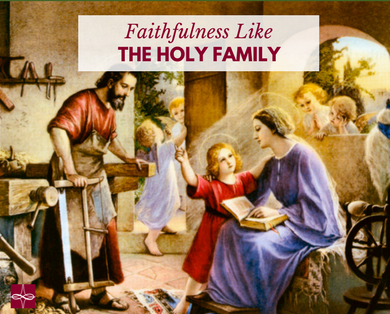
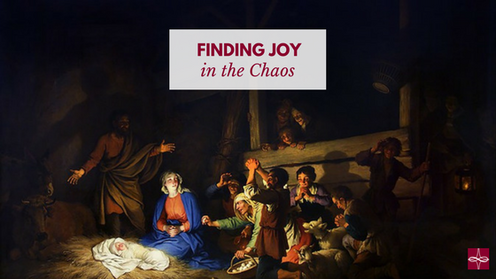

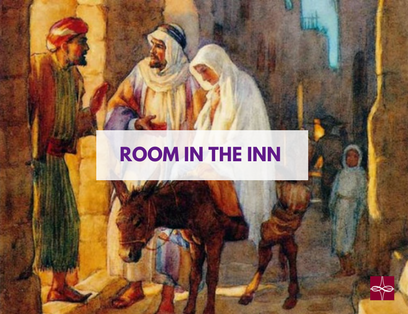

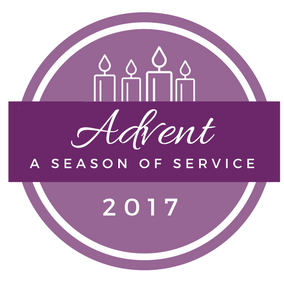
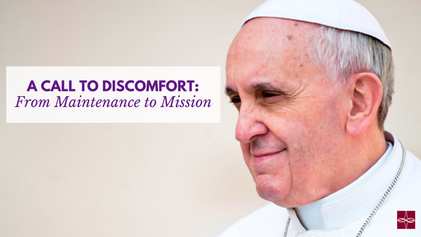

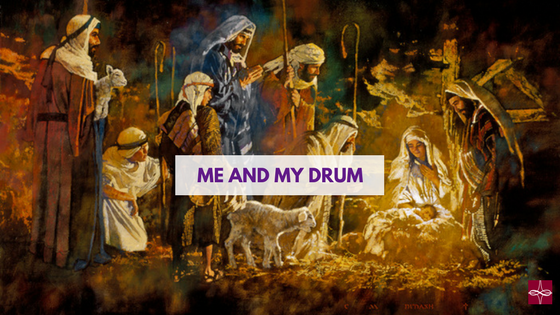

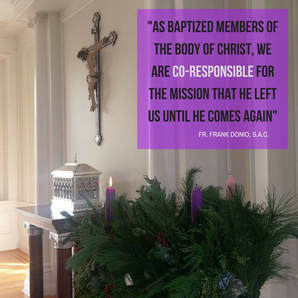
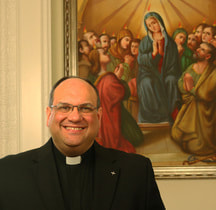


 RSS Feed
RSS Feed